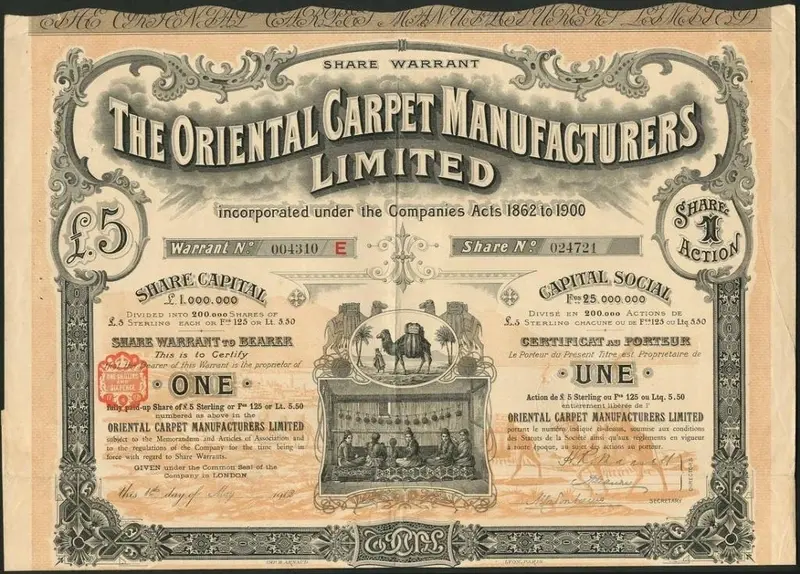
The origins of the share ownership in the UK can tell us a plenty about how the stock market operates today and what exactly a ‘share’ is.
The trade of stocks and shares in London began at the end of the 17th century with the need to finance two great voyages - the Muscovy Company’s attempt to reach China via the White Sea north of Russia and the East India company’s exploration of India and the Far East.
Neither company was able to finance such expensive journeys privately, so they turned to merchants who agreed to help fund these ventures in return for a portion or ‘share’ of any eventual profits.
A ‘SHARE’ OF FUTURE CASH FLOW
In much the same way, companies in the 21st Century issue shares or equity in their business to help fund growth and development. And just like those hopeful merchants back in the 1680s, investors buying shares in the likes of BT (BT.A), HSBC (HSBA) and Marks & Spencer (MKS) today, are aiming to secure a return from their chosen company’s future profit and cash flow.
Training yourself to think in terms of your shares being part ownership in a company or companies with entitlement to their future cash flow, and any dividends they choose to pay from this cash flow, will help you think about investing as a long-term exercise.
Stock markets, made up of a multitude of trades by individual investors, are ‘forward-looking’, acting as a discounting mechanism which reflects a perception of the future ahead of time.
Shares will be valued and priced according to this perception until reality - in the form of a trading update, set of results, macro-economic development or some other piece of news - intervenes to change the market’s view.
Valuation and prices will then be reset by buying and selling activity as the news is swiftly digested or ‘priced in’.
IT’S NOT JUST THE PRICE OF A SHARE WHICH CAN CHANGE
As well as the price, the number of shares in a company can also change. Primary issues of shares involve a private firm becoming public by floating on a stock exchange but there are also secondary issues of stock as company effectively creates and sells new shares to raise fresh funds. By increasing the total number of shares, the value of existing shareholdings is diluted.
The number of shares a company has in issue can also be affected by share splits and consolidations, which might see one share split into three in the former case or three shares combined in one in the latter.
As well as listing on a stock market, a share can also be delisted. You will still legally own the shares but might find them difficult to sell without the liquidity provided by an exchange.
And if a company goes out of business, shareholders are typically at the back of the queue, behind the company’s creditors, when it comes to getting any of their money back.
This will be the first of a series of guides on the basics of the financial markets to appear on our website in the coming weeks





